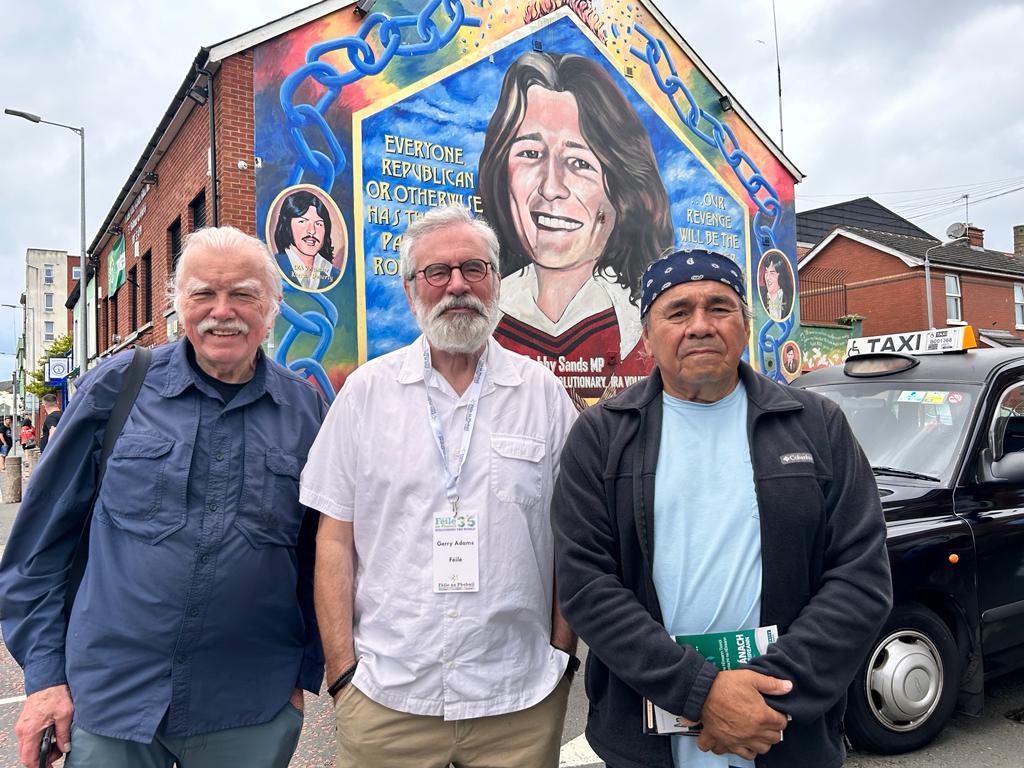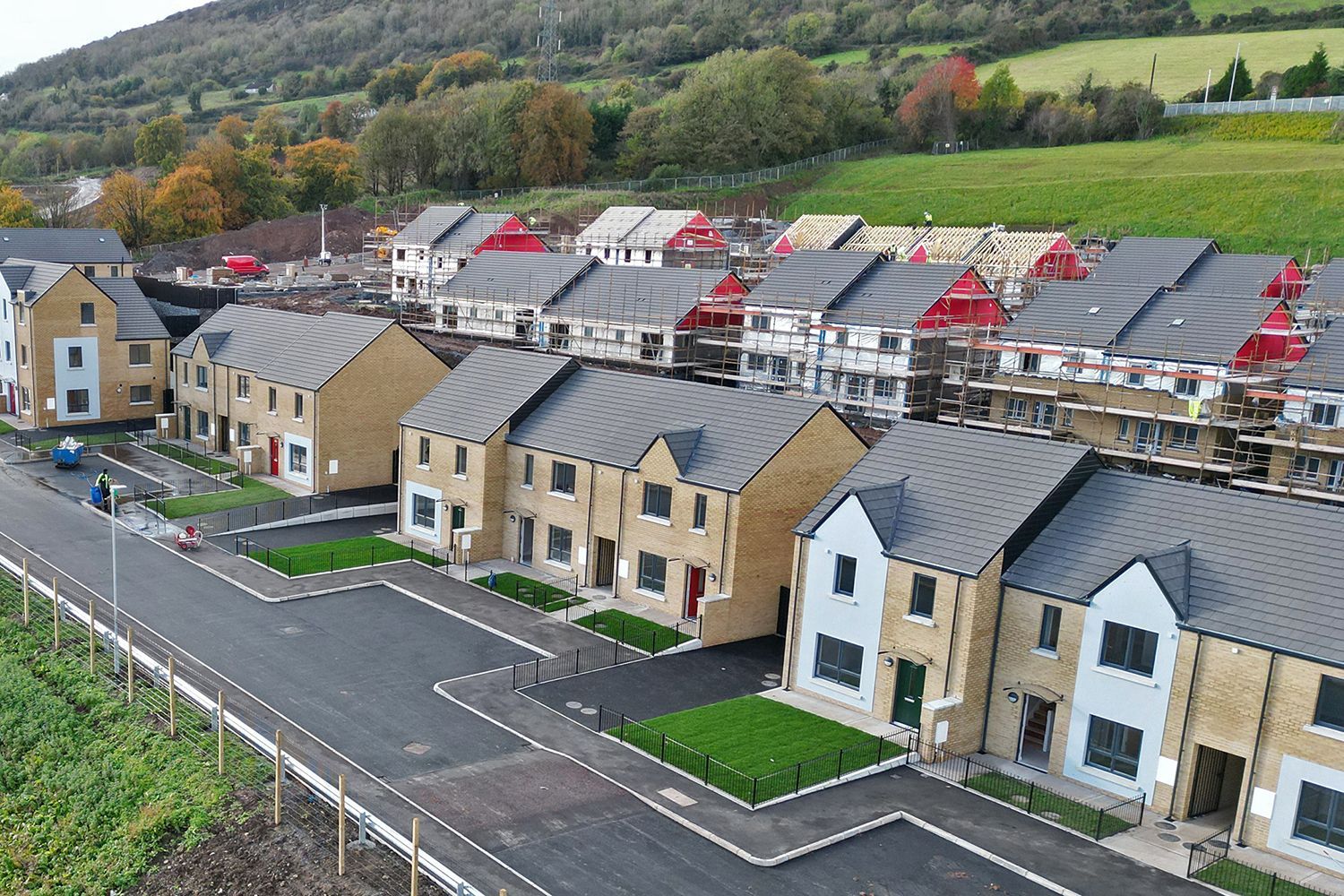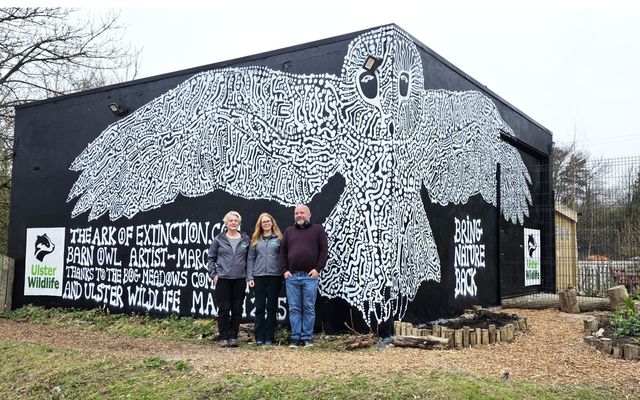This summer, we had the uplifting visit to West Belfast of Willard Carlson (below, right, with Gerry Adams and film-maker Kevin McKiernan), an elder of the Yurok Tribe of Northern California who had fought at the Wounded Knee siege in 1973.
Willard's trip to Féile an Phobail was supported by the Seventh Generation Foundation, a giving fund founded by the famed Iroquois Confederacy to support Native America ventures.

Their guiding principles are summed up in their mission statement: "We will care today for seven generations of tomorrows by stewarding social and environmental progress in the communities we live, work and do business."
Willard was even more concise: "We consider the impact our actions today will have on the seventh generation to follow." In other words, consider how the decision I take today will affect my great-grandchildrens' great-grandchildren's children. In terms of years, we're looking at how what I do today would land in 2173.
Of course it seems pretty surreal to imaging any decision we make today being relevant a century-and-a-half hence but of course there is one area where that is the case: the names we give places.
Indeed, we have seen the enduring impact of names on our own community. After the Crimean War (1853-1856), street names honouring that campaign - Sevastopol Street, Kashmir Road and Raglan Street to name but three — were given to new streets around the Catholic Falls Road. And they remain today, seven generations and more later.
One would expect the tradition of labelling new developments and streets in honour of our overlords to have continued into the 20th century under the unionist regime at Stormont. In fact, across West Belfast something very different and much more enlightened happened.
For, while Belfast has remained a citadel of unionism for much of the past seven generations, the authorities embraced street and place names which respected the local Irish and Scots-Irish heritage. Thus we had Rathcoole and Glencairn estates emerging in the sixties and seventies in areas which are now emblematic of loyalism. A generation earlier, the City Fathers gave their blessing to a new development sporting names inspired by the Mournes, giving us Bingnian, Bearnagh and Commedagh in what is now known as 'old' Andersonstown.
That tradition was to continue into the sixties with names as old as the Irish language itself given by the unionist-dominated housing authority to 'Upper' Andersonstown: Ramoan, Tullymore, Tullagh and more, all rooted locally. Those street names were a fitting prologue to the seventies and eighties with the names Gortnamona and later Aitnamona gracing new developments off the Glen Road.
The approach even rubbed off on the developers of a new seventies private Glen Road development linking the two Andersonstowns: Coolnasilla.
As a result, the streets and estates and roads of Andersonstown respect a heritage which goes back not just seven generations but seventy and more - by reflecting our Irish and Ulster-Scots place names.
Among the most revered of the names handed down to us is the name we give to the proudest peak on the Belfast Hills - Dubhaois or Divis. It has survived translation so that even in Anglicised form it is redolent of Ireland.
Until now, that is. For the Apex Housing Association is proposing to dismember the Irish name 'Dubhaois' and to use its literal translation as the name of their 650-house development at the former St Pat's home on the Glen Road: 'Black Ridge'.
In doing so, they are trashing two thousand years of history and one hundred years of street name policy which reflected a rare instance of respect and generosity by largely unionist-controlled authorities.
And, of course, if Black Ridge does become the name of this new development - tucked in between Clonelly, Coolnasilla, Ballaghbeg and Aitnnamona — it will remain a testament to a cultural myopia when this author and all reading this article are long gone. Indeed, in all likelihood, it will last seven generations.
And that seventh generation no doubt will look back at their ancestors of Belfast in the 2020s and wonder how sad they must have been to replace the glorious Dubhaois with the banal Black Ridge.
The author has now written to both Apex Housing Association and Belfast City Council to urge the retention of the name Dubhaois.









